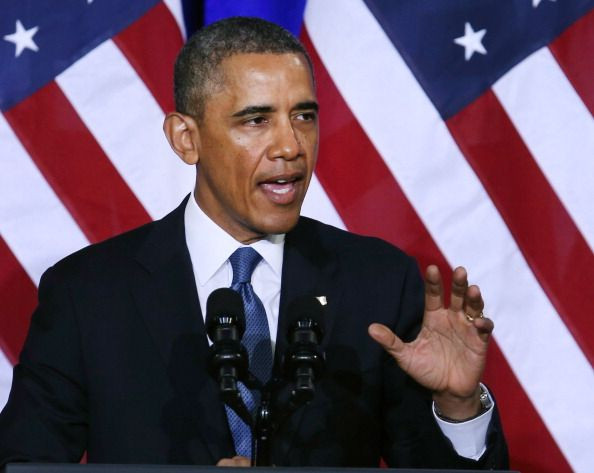Patriot Act: Senate Reauthorizes Modified Phone Program

Update 9:30 EDT: President Barack Obama signed the renewal of what was formerly called the Patriot Act and what is now known as the USA Freedom Act into law Tuesday evening. The ability for the government to access bulk phone data was suspended for less than 48 hours. The NSA may now resume accessing the data under a modified program that requires phone companies to store the information.
Original story:
WASHINGTON -- Legislation renewing most of the key provisions of the Patriot Act was passed overwhelmingly by the Senate Tuesday and is now headed to President Barack Obama for signature. The president has already indicated he will sign the bill, which would modify the way the government tracks phone data.
The Senate voted 67-32 to reauthorize much of the now-expired Patriot Act -- which was renamed the USA Freedom Act after changes to the phone data collection program were made. The lapse in the program is now expected not to exceed 48 hours. Sen. Rand Paul spent weeks trying to kill -- or at least delay -- reauthorization but ultimately failed.
Senate Majority Leader Mitch McConnell failed to amend the legislation -- an attempt to allow for a longer transition in period in changing the way the government monitors phone calls. Instead, the changes in the program will be immediate.
After the amendments failed, McConnell delivered an angry speech on the Senate floor, admonishing fellow senators for supporting the bill and blamed the president for trying to dismantle national security measures. He appeared to jab at Paul, who has advocated a smaller military and seemed to defend Edward Snowden once, although has since been more critical of the famed leaker.
“Today the Senate will vote on whether or not we should take one more tool away from those who defend this country every day,” McConnell said. “Nobody’s civil liberties are being violated here. The president’s campaign to destroy the tools used to prevent another terrorist attack has been aided by those seeking to prosecute the officers in the intelligence community, diminish our military capabilities and despicably to leak and reveal classified information, putting our nation at risk.”
McConnell added, “It is also a resounding victory for those who currently plotted against our Homeland. Where was the defense of the National Security Agency from our president?”
The Patriot Act was allowed to expire at 12:01 a.m. Monday after Congress failed to move quickly enough to avoid a lapse. Paul led the effort to slow the process of renewing the Patriot Act. But ultimately, Paul could not muster enough support from fellow members to kill or delay passage indefinitely.
As the bill heads down Pennsylvania Avenue to the White House, it marks an ultimate defeat for Paul. He spent much of the last two weeks criticizing the Patriot Act -- saying the government should have no ability to conduct surveillance of Americans. His staunch opposition -- including forcing votes in the middle of the night -- drew the ire of fellow senators and praise for him from his supporters for president. But in the end, the program will largely still exist as it did before.
The biggest change to the Patriot Act is related to how the government conducts reviews of bulk phone data. Previously, the government collected the data from phone companies and then stored it on its own servers. Now, the data will be housed by the phone companies, and the government will have to seek permission to obtain it.
The changes were negotiated in the Senate and seen as a bipartisan compromise on continuing efforts to avoid another terrorist attack while also adding additional privacy safeguards. Paul and other opponents argued not enough was being done to make it difficult for the government to obtain that information and the status quo would remain.
© Copyright IBTimes 2025. All rights reserved.






















